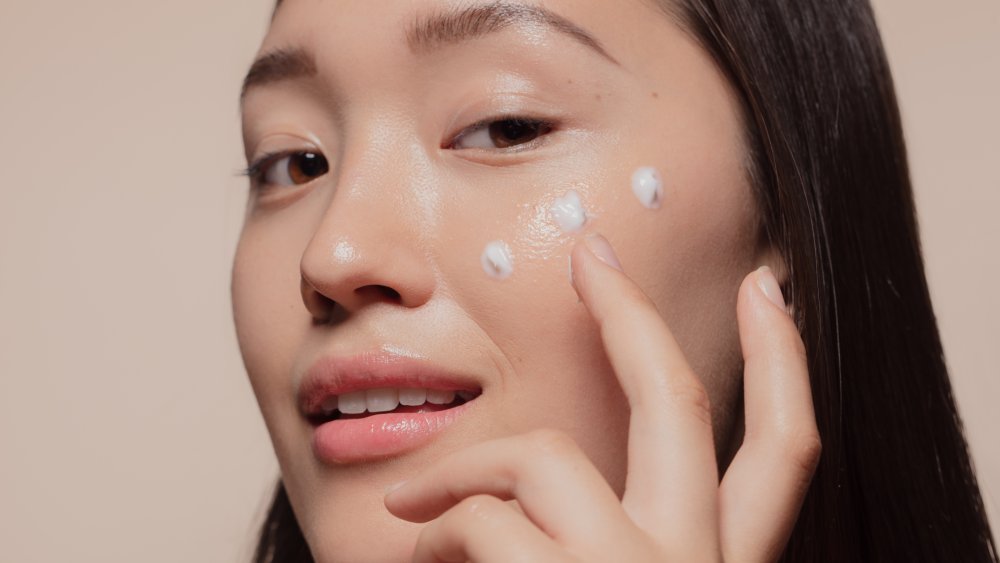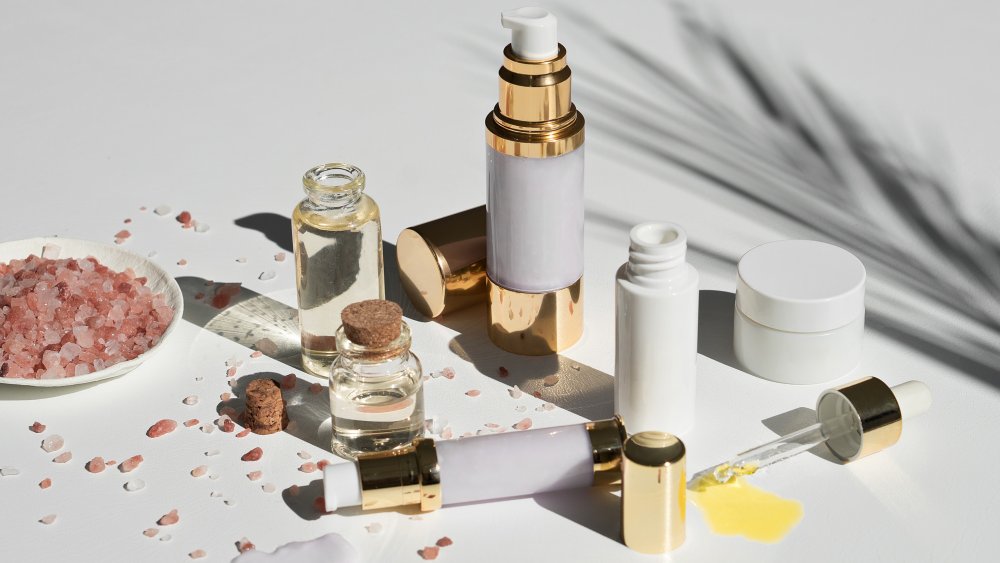Why Bakuchiol Is A Better Choice Then Retinol
Retinol is placed on a pedestal for its skincare capabilities, and rightfully so. Its of benefits long list include targeting fine lines and wrinkles, promoting cell turnover, and positively influencing your collagen stores, among other things (via Business Insider). It's also incredibly easy to use and accessible, coming in the forms of creams, serums, and moisturizers. While it was once a prescription, you can get it nearly anywhere now at a variety of different price points. But as much praise as retinol gets, not everyone's complexion tolerates it.
Avid users know that there is almost always an adjustment period, which usually includes flaking, peeling, and redness (via InStyle). Unfortunately, that never ends for some people, and the side effects that occasionally occur — or should only temporarily occur — stick around for good. This is why the discovery of bakuchiol's skincare benefits was so exciting, because it effected the skin just like any of your classic retinoids, sans the rough side effects, according to Health.
When to use bakuchiol vs. retinol
Cult-favorite product or not, there are people whose skin can't handle the effects of retinol, which is why bakuchiol is such a great option. This ingredient has very recently entered the mainstream skincare vocabulary, and its undeniable benefits have contributed to its buzzy rep. Botanically-derived, bakuchiol comes from the babchi plant and, like retinol, can keep your old cells shedding and skin imitating collagen production (via Allure).
If your skin is ultra sensitive or you've found that it never seems to adjust to using a retinol, bakuchiol may be your best alternative. But in comparison, the vitamin A-based ingredient has been around for longer and its uses have been proven a number of times. So, in the meantime while you wait for even more promising studies, if your skin does fine with retinol already, it's best to stick with what you know and what is most potent in the eyes of dermatologists.

